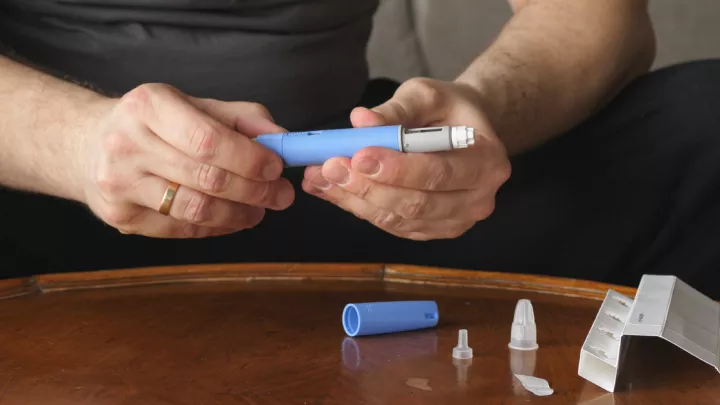Tianeptine supplements pose serious health risks

Tianeptine has been on the market globally for several years but has recently grown in popularity in the United States. It is marketed as an over-the-counter dietary supplement that can lift your mood and wakefulness, improve brain function and reduce anxiety and depression. It’s frequently sold as a combination supplement. It can often be found on the shelves of your local gas station or convenience store.
But recent reports about this seemingly benign supplement are not so good.
“Tianeptine is a pharmaceutical that has been used in Europe for depression for many years,” says Claudia Moore, MD, Nebraska Medicine addiction medicine specialist. “The drug falls into a class of drugs called tricyclic anti-depressants that are not commonly used anymore because of their side effects,” says Dr. Moore. “This particular drug has never been approved by the Food and Drug Administration.”
Concerning side effects, especially when taken in large doses, include nausea, vomiting, increased heart rate, agitation, cardiac effects, seizures and potentially even death.
“The drug can produce some effects that mimic opioids, so we are finding that some people use it as an opioid alternative for the high,” notes Dr. Moore. “This is a potentially dangerous substance that should be avoided at all costs. In addition to the side effects mentioned, it can also lead to dependence and cause severe withdrawal when stopping usage. There are much safer options for depression or anxiety.”
The FDA recently posted a third warning about tianeptine products, including those sold under the name Neptune’s Fix. The FDA warns consumers not to use or purchase these products as they can lead to “severe adverse event reports,” including seizures, loss of consciousness and death. The FDA has also expressed concern that the drug may interact with other medications in life-threatening ways.
“Because it is being sold as a supplement, it is not regulated,” notes Dr. Moore. “Therefore, the potency and dose can vary greatly from one product to the next. As a result, we don’t really know that it contains what it is being marketed to contain. When a drug is approved by the FDA, it undergoes strict quality control and oversight. Supplements and herbal supplements do not have that same quality control.”
As the adverse side effects have become more apparent, tianeptine has been banned in some countries and some states here as well, notes Dr. Moore. The drug is currently under further review by the FDA.
Withdrawal symptoms
If you have been a regular user of this drug, stopping usage may cause withdrawal symptoms similar to those experienced by opioid users. These include:
- Nausea and/or vomiting
- Agitation
- Hot and cold flashes
- Bone aches
- Dehydration
When to seek medical advice
“People undergoing withdrawals from drugs like opioids often return to using the drug because the withdrawal symptoms are so severe,” says Dr. Moore. “In some cases, these symptoms can even lead to hospitalization. If you are experiencing severe withdrawal symptoms, consider seeking medical advice. We have medications that can be prescribed to help manage these symptoms.”
Whenever you use supplements or herbal supplements, you should let your primary care doctor know or discuss with them before taking them, notes Dr. Moore. Supplements can cause other unintended health problems and/or interact with current medications you may be taking.
Need a doctor?
Call 800.922.0000 to schedule an appointment with one of our psychiatry doctors close to home.







